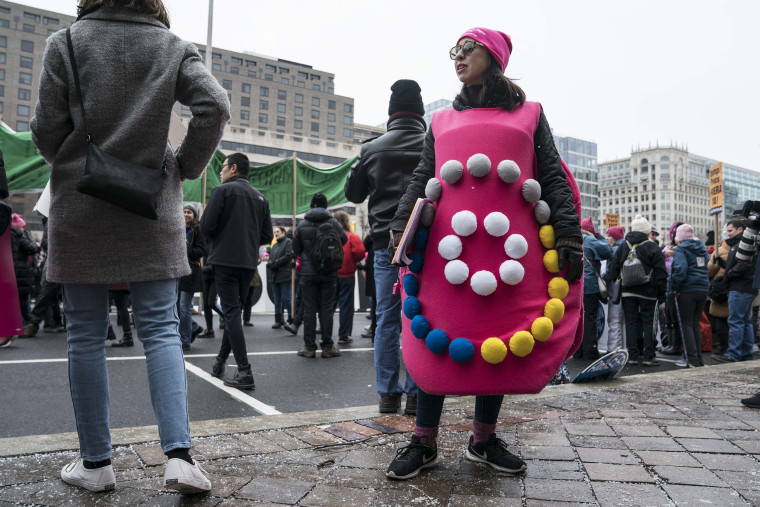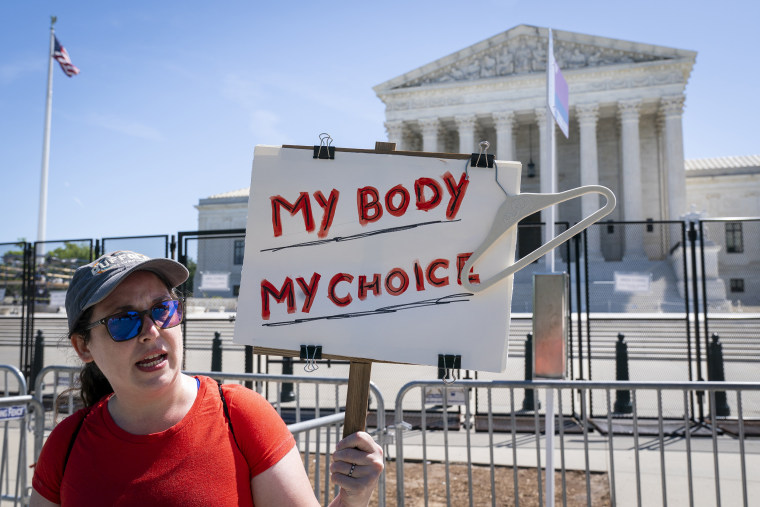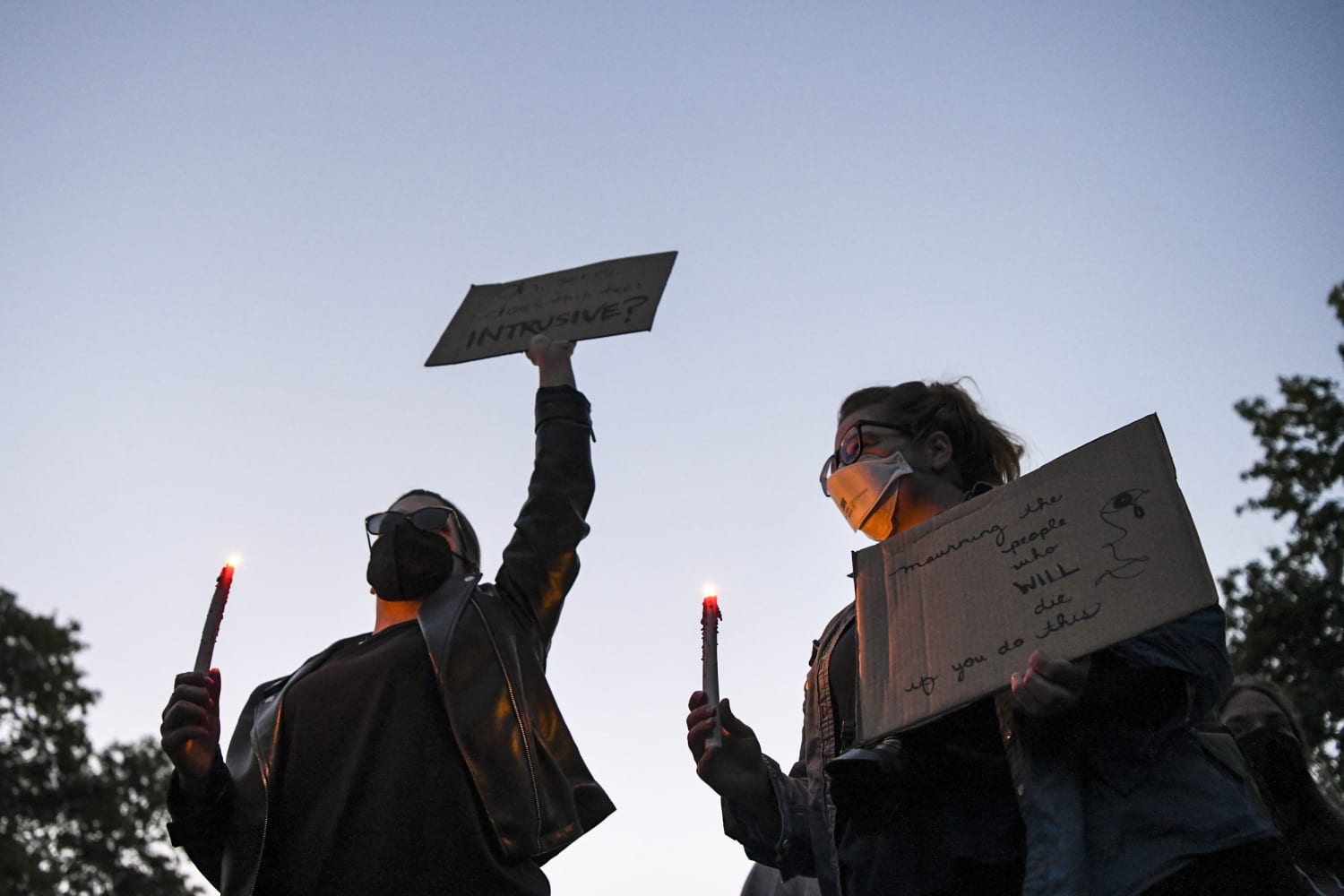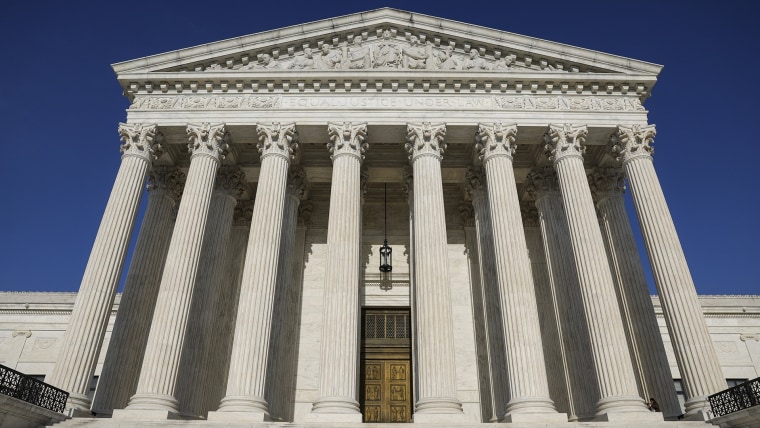With trigger laws in 13 states poised to go into effect if the Supreme Court strikes down Roe v. Wade, a new era of restricted access to birth control could unfold in states that narrowly define when life begins, legal experts say.
“This is the new Jane Crow that we’re about to enter,” said Michele Goodwin, a chancellor’s professor of law at the University of California, Irvine, and the author of “Policing the Womb: Invisible Women and the Criminalization of Motherhood.”
“It’s no longer a hypothetical — the reality is already here,” Goodwin said, pointing to states that are considering legislation to limit which kinds of birth control residents can acquire, like Louisiana and Idaho.

Some conservative lawmakers wasted no time signaling they were looking into restricting or banning certain types of emergency contraception, such as Plan B and other morning-after pills that can be used within 72 hours of intercourse to prevent pregnancy.
A leading Republican state legislator in Idaho suggested last week that he would be open to holding hearings on banning emergency birth control, and Sen. Marsha Blackburn, R-Tenn., recently denounced Griswold v. Connecticut, the 1965 case that expanded access to contraception to unmarried people.
In Louisiana, legislation would classify abortion as a homicide and define “personhood” as beginning from the moment of fertilization. Contraception methods like Plan B and certain types of intrauterine devices, or IUDs, could be restricted under the bill, said Cathren Cohen, a scholar of law and policy at the UCLA Law Center.
“Anything that would prevent a fertilized egg from turning into a pregnancy and being born into a baby could be considered a homicide,” she said. “If you define a pregnancy and you define a person as including just this fertilized egg, then technically you are legislating that an IUD can cause an abortion.”
Justice Samuel Alito’s draft opinion triggered a tsunami of questions about whether his language could be used to target more than just abortion and leave a kind of legal vacuum.
In his 98-page argument, Alito wrote that Roe v. Wade should be overruled because the Constitution “makes no reference to abortion, and no such right is implicitly protected by any constitutional amendment, including the one on which defenders of Roe … now chiefly rely — the Due Process Clause of the Fourteenth Amendment.”
Alito went on to differentiate between abortion and other rights guaranteed by the 14th Amendment, writing that the procedure is “fundamentally different … because it destroys … what the law now before us describes as an ‘un-born human being.’”
How states define an “un-born” human will determine whether they would restrict access to contraception, especially birth control that prevents the implantation of fertilized egg, said Jessica Arons, a senior policy counsel at the American Civil Liberties Union.
“In the absence of federal law dictating one outcome or the other, it is going to be a state-by-state issue, but that’s not how fundamental rights work,” she said. “People are about to experience a real disconnect between what they understood as bodily autonomy.”
For conservatives looking to limit more than just abortion, Alito’s opinion would create a blueprint for the Supreme Court to give states power to regulate a number of individual rights ensured by past interpretations of the 14th Amendment, including access to contraception.
“If this opinion really does become law, you could see a lot of the rights associated with abortion come in danger,” said Maxwell Mak, an associate professor of political science at the John Jay College of Criminal Justice in New York. “The way the draft opinion is written, it opens the doors for a lot of unanswered questions that would allow conservatives to really target contraception.”

“With Alito’s narrowing and elimination of abortion as something that is guaranteed under the 14th Amendment, everything else becomes less secure,” he added. “Everything goes back to: ‘What is explicitly written in the Constitution? What is fundamental to the concept of liberty?'”
While the Constitution does not mention abortion, it also does not mention a right to privacy. The Supreme Court has codified the concept over the years through various decisions, including Roe v. Wade. The idea has also been applied to circumstances that are less socially divisive, including the Fourth Amendment, which prevents police from searching people and their property without probable cause.
But terminating pregnancies remains deeply polarizing culturally and legally, leading to what experts have dubbed “abortion exceptionalism.” The idea is that abortion is more heavily regulated than other medical procedures because it carries with it a moral question, which leads the courts to weigh in more vigorously about something that would otherwise be left to medical professionals.
“You don’t see other forms of health care where people who don’t have medical expertise are making specific rules of how you must provide health care,” said Cohen of UCLA.
“We treat abortion differently.”
Source: | This article originally belongs to Nbcnews.com











